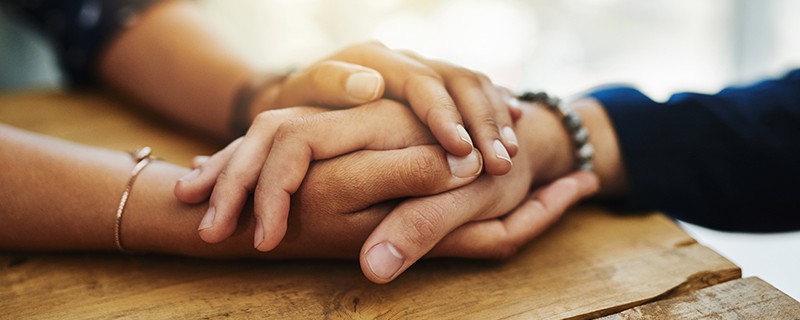How to Help: Tips for Supportive Friends and Loved Ones
Learning that someone close to you has been raped or sexually abused can be difficult. As a friend, parent, or loved one, you can play a positive role in supporting a survivor on their healing journey. Read this guide to learn how to help after hearing a disclosure.
Para Español.
What can I say if my friend or loved one tells me they have been raped or sexually abused?
What to say:
“I believe you.”
“I’m sorry this happened to you.”
“It wasn’t your fault.”
“Thank you for telling me.”
“I’m always here if you want to talk.”
“Nobody deserves this.”
What to avoid saying:
“It was your fault.”
“You could have avoided it had you ____.”
“It’s been so long! Get over it!”
“You wanted it.”
“It’s not that big of a deal; it happens to lots of people.”
“I don’t believe you.”
What can I do to support a survivor of sexual assault or abuse?
What you can do:
- Ask the survivor how you can help them.
- Respect them enough not to pity them.
- Ask if it’s OK to hug or touch them, and be OK with a “no.”
- Offer to accompany them to their first therapy session.
- Allow them to tell you as much or as little as they need to.
- Aim to find the difference between being supportive and overbearing.
What not to do:
- Try to solve all their problems for them. The survivor has had their control taken away from them; try to avoid doing that again.
- Demand to know every detail of the assault or abuse.
- Be afraid of silence. If you don’t know what to say, that’s OK. The most powerful statement a friend can make is by simply being there.
- Press them to talk about it. If they want to discuss what happened, be open to that. Be aware that many of the emotions they felt during the rape or abuse may be present as they share their experience.
What if I need help, too?
As a secondary survivor, you are also affected. Cleveland Rape Crisis Center’s hotline and therapeutic services are always available to both survivors and secondary survivors.
Remember, helping yourself helps the survivor. There is no reason to feel guilty or selfish for taking care of yourself and your many emotions. It is normal to feel the following and more: helplessness, guilt, shame, loss of intimacy, loss of routine, frustration, need for retaliation, over-protection, anger. Healing is possible.
Call or Text (216) 619-6192 or (440) 423-2020 or chat online.

